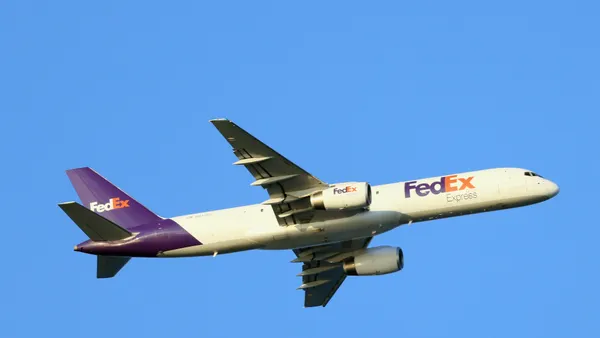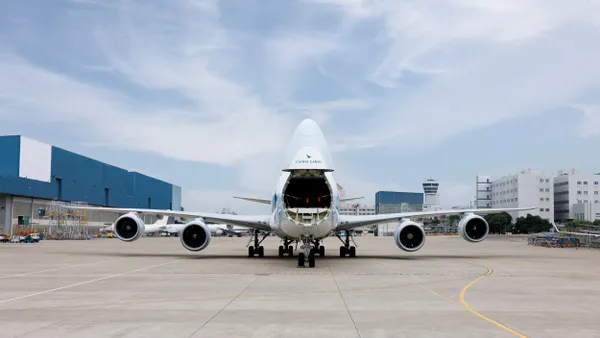Dive Brief:
- Airfreight volume fell 2.7% year-over-year (YoY) in December — the 13th straight month of declining volume. Volumes were down 3.3% YoY for 2019, which is the first annual decline since 2012, according to the International Air Transport Association (IATA).
- Airlines grew capacity by 2.8% YoY in December and 2.1% YoY for 2019. Carriers adjusted capacity to the slowing demand in 2019, but did not close the gap between supply and demand, IATA pointed out in its note.
- COVID-19 and the response to fight the outbreak are expected to result in a "sharp downturn in demand" in the airline industry, IATA CEO Alexandre de Juniac said in a statement. "Airlines are making difficult decisions to cut capacity and in some cases routes," Juniac said. "Lower fuel costs will help offset some of the lost revenue. This will be a very tough year for airlines."
Dive Insight:
Until last week, the impact from COVID-19, an illness in the coronavirus family, had been negative for the air freight business. The quarantines in regions throughout China resulted in factories remaining closed past the Chinese New Year holidays, which reduced demand across freight modes. But last week factories began restarting operations.
As factories come back online, shippers could turn to air freight.
"We're starting to really see the tremendous demand and the increase in yields and the factories to get back to work this week," Spencer Schwartz, Atlas Air Worldwide CFO said on an earnings call last week.
Airlines have canceled more than 200,000 flights as a result of COVID-19, according to CNBC. Freight capacity is reduced as a result of the cancellations as even commercial airlines use their bellies for cargo space. But Atlas sees an upside to the reductions on the commercial side of the industry.
"Even when the commercial belly capacity comes into the marketplace, there is still going to be a tremendous amount of demand given the significant setback that manufacturing has experienced," Atlas CEO John Dietrich said on the call.
Shippers are relying on cargo-specific freighters and charter flights with passenger airlines restricting flights in or out of China. But for shipments heading into China, shippers might experience some delay once it arrives.
"Cargo has been coming in, but then simply just lying around in warehouses, which were obviously also shut down for an extended period of time," Mirko Woitzik, the manager of EMEA Risk Intelligence at Resilience360, told Supply Chain Dive in an interview.
There is also a shortage of truck drivers in China, causing further pileups in the warehouses. As a result, some air carriers require shippers to provide proof of arrangements for the shipment once it arrives, Woitzik said.















